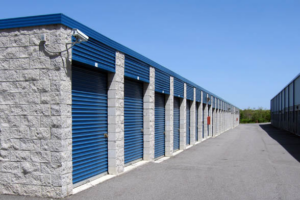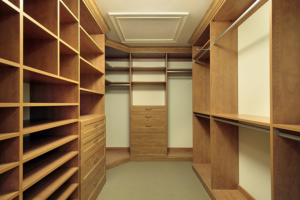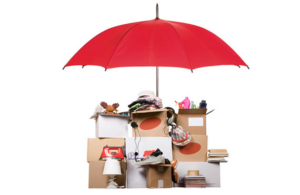Self storage is a great option for keeping your belongings safe and out of the way. You might be looking for storage if you’ve recently downsized, are in the process of moving, or just want to get rid of some clutter in your current home. There are over 50,000 storage facilities in the United States with varying features and prices, so finding the perfect storage space for your needs can be challenging. This guide will help you understand the ins and outs of self storage, so you can find and rent storage space that fits all of your needs.
Renting Storage Space in Utah
There are several storage facilities in Utah, but most of them are full or nearly full. If you don’t already have a storage unit that’s been in your family for generations, you’re going to have to do some digging to find an affordable storage space that works for you.
Some important storage features to consider while you are comparing storage facilities are security, location, and climate control, which is especially important considering Utah’s extreme weather.
You can search for self storage online just like you would search for other rentals. Several websites allow you to search for and compare individual storage spaces at various facilities, saving you the hassle of contacting each facility yourself. You can choose to search for traditional self storage units, or use a peer-to-peer self storage community like Neighbor.
Benefits of Self Storage
Convenient Access
The majority of self storage facilities allow 24/7 access to your storage unit, so you can visit your storage at a time that works for you. Most facilities also have an emergency phone number you can call after office hours to receive additional assistance. While you will be able to come and go from your storage unit on your timeframe, if you aren’t able to rent storage space close to your home or work, you might not have such convenient access.
Choice of Size
Traditional self storage facilities have a variety of unit sizes to choose from. With your choice of size, you only have to pay for the space you need. The downside to this is that you have to pay the full price of a bigger unit even if you only have a few too many items for a smaller space.
Secure Payments
Several storage facilities are adopting online and automatic payments for their renters. These payment methods ensure your money is handled correctly, so you won’t have to worry about lost checks or dishonest management.
Benefits of Peer-to-Peer Storage
Half the cost
Instead of paying $100 a month for that 10×10 storage unit, you can store with a peer-to-peer storage company and pay only $50 or less. You get all the benefits of traditional self storage, plus more at half the price.
Flexible Contracts
With peer-to-peer storage, you don’t have to worry about getting locked into a contract or paying extra charges. Month-to-month contracts make it easy to rent storage space for short periods of time or long periods without worrying about cancellation fees.
Convenient Locations
Finding storage near you can be tricky. Especially since self storage facilities in the U.S. are 87% full according to recent self storage stats. With peer-to-peer storage, you can find storage options in your own neighborhood!
Individual Needs
When you choose peer-to-peer storage, you work with actual people rather than big concrete rooms. A concrete room can’t adapt to your storage needs, but a person can. Opting for peer-to-peer storage means you can work with your host to meet all of your individual needs.
Storage Sizes
One of the hardest parts of picking out your ideal storage space to rent is determining what size you need. Below are three of the most common sizes of storage spaces with descriptions to give you an idea of what will fit in each size.
5×5 Storage Space
A 5×5 storage space will fit the contents of your closet. These are popular choices for summer storage for students and usually the cheapest units available in a storage facility. If you only have a few boxes and one or two small pieces of furniture to store, 5×5 is the perfect choice for you.
10×10 Storage Space
The typical storage unit size is 10×10. These units are about the size of a bedroom and will hold the contents of your 1 or 2 bedroom apartment nicely. These are by far the most popular size of storage space because there is enough space to handle most of your storage needs.
10×20 Storage Space
If you’re looking to store vehicles, boats, or your entire house, you should look into a 10×20 storage space. Imagine putting two typical-sized storage units together and you will have a 10×20. These spaces are less common than smaller sizes, but extremely useful if you have a lot of items that need to be stored.
Storage Unit Features
Climate Controlled
Climate controlled units are kept at a comfortable temperature year-round. These units protect your items from extreme temperatures and humidity and are worth the extra money if you are storing sensitive items. The definition of climate control varies between facilities, so it’s always best to check with management before renting storage space in a facility.
Security Cameras
Most facilities have security cameras, but they vary by quality and quantity. These are a major deterrent for thieves, and help keep your unit safe. You will want to take a tour of the facility and clarify beforehand what kind of security measures have been taken.
Indoor
Indoor storage units are inside a building, and are great for getting out of the weather while you transfer items to and from your storage. These units usually have the option of being climate controlled.
Drive-up Access
Being able to drive up to your storage unit is critical for vehicle storage and useful for moving large items. If you are looking to store furniture, be sure the storage space you rent has drive-up access. These types of storage units are typically outdoor units.
Electricity
Electrical outlets are not a common storage unit feature due to added fire hazard and cost of electricity. If you have permission to use your storage space for a workspace or band practice, it may be worth dishing out the extra cash for access to electricity, but chances are you won’t need it for your typical storage needs.
What You Can (and Can’t) Put in Storage
Approved
- Clothes. Keep your clothes packed in boxes, totes and bags for protection from pests, and be sure to protect your apparel from humidity.
- Books. Humidity is the enemy when storing books, so take precautions to make sure they stay dry and mold-free.
- Furniture. If you’re spending time and money storing your furniture, you should protect it from pests, humidity, and dust. Climate-controlled indoor storage is the best place for furniture.
- Electronics. Electronics are especially susceptible to weather and dust, so consider a climate-controlled unit if you are planning to store them.
- Decorations and Seasonal Items. Storage is a great place to keep your boxes of Christmas lights the 11 months out of the year you aren’t using them. Keep your decorative items packed away in totes and they should be fine in any storage conditions.
Prohibited
- Anything alive. Don’t put your pets in your storage unit. Aside from the obvious animal cruelty, management will definitely notice and you will be evicted. On the same note, don’t put your plants in storage. There is no sunlight or water in a storage unit, and your plant friends will shrivel up and die. Give them away if you can’t keep them with you.
- Food. If you want to have everything in your storage unit infested with rats, bugs, and other pests, put some perishable food items in there. This is also a great way to get evicted quickly.
- Garbage. Why would you want to store garbage anyway? Like food, it will attract all sorts of pests, so just take your garbage where it belongs.
- Illegal items. Other people will likely notice if you’re doing suspicious things with your storage unit and you will get busted.
- Flammable or hazardous materials. This is a no-brainer. Storing dangerous chemicals is not only against storage facility policies, it will probably destroy everything else you have in your unit sooner or later. Just don’t do it.
- Equipment. Some kinds of construction or medical equipment is prohibited in certain storage facilities, so double check before you start storing your equipment
Is it Illegal to Live in a Storage Unit?
In a word, yes. With inflating rent prices, it might seem like renting out a storage space is the only rental in your budget, but unfortunately it is illegal to live in a storage unit. Some storage sites will go as far as letting you set up a game room or have your garage band practice in your unit, but as soon as you are caught sleeping or actually living in your unit, management will call the cops.
Do I Need Storage Insurance?
Most storage facilities do not require you to have insurance to rent a storage space. Even though it’s not a requirement, depending on what you’re storing, you might want to consider self storage insurance.
Insurance Through the Storage Facility
Some storage facilities offer insurance policies to make things more convenient for their renters. These policies typically only cover a few thousand dollars worth of damages and certain kinds of damage or items may not be covered. There usually is no deductible for insurance policies offered through storage facilities, but you can expect higher rates and lower coverage than other storage insurance policies.
Other Insurance
If your storage facility doesn’t offer insurance, or you’re looking for a better rate, you can look into getting insurance through an independent storage insurance company like SnapNsure. Most of these companies offer coverage of up to $15,000 for a couple hundred dollars a year.
If you don’t want to purchase a new insurance policy, adding storage insurance to your current homeowner’s insurance is a great way to save money. You’ll likely have a lower rate than an independent storage insurance company, and you might even qualify for discounts.
Overall Cost
You can plan on spending $1 to $2 for every $100 worth of value you want to insure. As you are considering whether to get insurance or not, keep in mind that damages can happen to your stuff at any storage space, regardless of security or personnel. If you plan to store anything of value, self storage insurance is a good idea.
How Do I Know My Stuff is Safe?
One of the most important things to consider when searching for your ideal storage space is security. Along with a good location and affordable price, you should be sure you can have peace of mind knowing your stuff is safe when you rent a storage space. Check out this list of storage safety tips to get an idea of what you can do to keep your things safe.
- Tour the storage facility. Make sure to check everything out thoroughly. Note the kind of lighting and fences the facility has, and the way units are locked.
- Talk to the manager about security practices of the facility. Most facilities have some sort of gate system and some have security cameras or nightly personnel.
- Check out the location. Take a look at the neighborhoods and business districts near the storage facility. Facilities in a good location will have fewer security issues.
- Use peer-to-peer storage. Traditional self storage units are only as safe as the locks on the door, but peer-to-peer storage spaces are maintained and protected by a host. These spaces are usually located in or near a host’s house, meaning your stuff will always have neighbors nearby. With peer-to-peer storage, you can count on having your storage space watched over 24/7, unlike storage units that become rows of sitting ducks once management goes home for the night.
Have You Tried Neighbor?
It’s not a secret that self storage is in huge demand right now. For renters, this means high prices, stiff contracts, and inconvenient locations. If you want to find a storage space close to you with all the extra features you’re looking for and without the high price tag try Neighbor!
Neighbor is an online peer-to-peer self storage community that connects people looking for storage space with people who have extra space. Neighbor takes care of background checks and secure payment processing, so you can feel confident in any of the storage spaces listed on Neighbor’s website.




